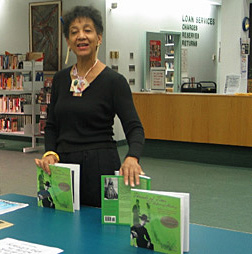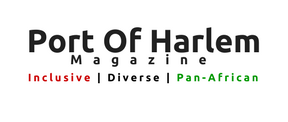The security line at the airport was backed up and I made it to the gate just as the airline attendant announced the last call. On my way to Detroit to speak on PrEP (Pre-Exposure Prophylaxis), I knew a missed flight would not be appreciated by the group requesting my appearance.
Breathing a sigh of relief, I made my way to my assigned aisle seat. The plane took off shortly thereafter. Following the flight attendant’s announcement that laptops could now be used, I opened my computer to review my talk. The passenger next to me noticed the topic I was reviewing and asked what I did for a living. After explaining that I was an internist with a subspecialty in Infectious Diseases, she asked if HIV is still a major concern. Deciding that that this was an educational moment, I closed my computer and began to answer her question.
Although in 2017 the life expectancy of someone living with HIV (and on treatment) approaches that of someone who is HIV negative, there remain obstacles in reaching the goal of people living with HIV (and on treatment) living as long as those who are not HIV positive. Accessing medical care, distrust of the medical system, HIV stigma, and the need to take a medication on a daily basis are only a few of the many barriers that those living with HIV might face. HIV remains an incurable medical condition and the prevention of its acquisition remains a medical mandate.
The good news is that the total new infections in the US declined by 10% from 2010 to 2015. Total new infections in 2015 were 39,393. Among groups, heterosexuals experienced a 24% decline since 2010 and people who inject drugs experienced a 31% decline since 2010.
The bad news is that the men who have sex with men (MSM) did not experience a decrease in new infections from 2010 to 2015. In fact, MSM 20-29 experienced a 10% increase between 2009-2015.
The prevalence (the total number of cases of a disease in a given population at a specific time) of HIV in certain populations in the United States is higher than some nations with a high prevalence of HIV. The prevalence of HIV among Black men in Washington, D.C. is higher than the prevalence rate found in the countries of Brazil, Burundi, Thailand, Rwanda, or Nigeria.
In March 2016, the CDC calculated the lifetime risk of acquiring HIV based on current infection rates. The results were quite disturbing. While the overall lifetime risk of HIV in the United States is 1 in 99, African American women have a 1 in 48 lifetime risk. African American men have a 1 in 20 risk and African American men who have sex with men have a 1 in 2 lifetime risk (50% of this population) of being diagnosed HIV positive.
Lifetime risk is greatest in the southeastern portion of the country. Washington, D.C. has the highest lifetime risk in the country (1 in 13) followed by Maryland (1 in 49). As these disturbing statistics illuminate, HIV prevention in 2017 remains relevant.
Generally speaking, pre-exposure prophylaxis (PrEP) is the preventive use of drugs to prevent disease in people who have not yet been exposed to the disease causing agent. In 2012, the Food and Drug Administration approved a drug, Truvada, to prevent HIV-1 (versus HIV-2, which is most often found in Africa). At present, Truvada is the only drug approved for this purpose.
HIV Prevention 2017 | Rosemary Reed Miller | Ethiopian Movie
Having trouble viewing this email? Click here
Having trouble viewing this email? Click here
August 17 – August 30, 2017
On The Dock This Issue:

HIV Prevention: Still Relevant in 2017
In 2012, the Food and Drug Administration approved a drug, Truvada, to prevent HIV-1 (versus HIV-2, which is most often found in Africa).
In 2012, the Food and Drug Administration approved a drug, Truvada, to prevent HIV-1 (versus HIV-2, which is most often found in Africa).
Descendants of Enslaved and Oppressors Met in St. Louis
Lynne Jackson, descendant of Dred and Harriet Scott, commemorated the 160th anniversary of the U.S. Supreme Court’s Dred Scott decision Saturday, August 12, as Confederates terrorized Charlottsville, VA.
Lynne Jackson, descendant of Dred and Harriet Scott, commemorated the 160th anniversary of the U.S. Supreme Court’s Dred Scott decision Saturday, August 12, as Confederates terrorized Charlottsville, VA.
My Everyday Hustle
Here are links to the last two releases.
Here are links to the last two releases.
Port Of Harlem Gambian Education Partnership Scholarship Fund
“We need to raise $1,425 by September 16,” says POHGEP president Wayne Young.
“We need to raise $1,425 by September 16,” says POHGEP president Wayne Young.
Rosemary Reed Miller’s Memorial Service
A Wednesday, August 23, 2017 memorial service will be at The Washington Ethical Society.
A Wednesday, August 23, 2017 memorial service will be at The Washington Ethical Society.
Ethiopian Film: Breathe In The Roots
The film tracks Joseph’s journey from Addis Ababa to Lalibela, one of Ethiopia's holiest pilgrimage sites, on horseback documenting his once in a lifetime experiences and showcasing a side of Ethiopia many rarely get to experience.
The film tracks Joseph’s journey from Addis Ababa to Lalibela, one of Ethiopia's holiest pilgrimage sites, on horseback documenting his once in a lifetime experiences and showcasing a side of Ethiopia many rarely get to experience.
Readers' Trends
See what is most popular in Port Of Harlem's e-mailed issue, and on our web, Pinterest, and Facebook pages.
See what is most popular in Port Of Harlem's e-mailed issue, and on our web, Pinterest, and Facebook pages.
Once confirming a negative HIV status Truvada is prescribed one tablet once a day with or without food. Negative HIV status must be reconfirmed every three months in order to continue the prescription. A prescription must not be given to those with known HIV infection, unknown HIV status, or have signs or symptoms of acute HIV infection. HIV resistance may emerge in individuals with HIV-1 infection who are taking only Truvada as this drug alone does not constitute a complete regimen for the treatment of HIV.
While the overall lifetime risk of HIV in the United States is 1 in 99, African American women have a 1 in 48 lifetime risk. African American men have a 1 in 20 risk and African American men who have sex with men have a 1 in 2 lifetime risk of being diagnosed HIV positive.
The most common side effects of Truvada in the clinical trials for PrEP included headache, abdominal pain, and weight loss. Your healthcare provider will also monitor for potential kidney toxicity. Discontinuation of Truvada due to side effects was infrequent.
The drug is used in combination with safer sex practices to reduce the risk of sexually acquired HIV-1 in adults at high risk. In the clinical trials which led to the approval of the first drug for PrEP, there was a 90% or higher relative risk reduction of acquiring HIV when comparing those who took their medication to those who did not. Those who were most consistent with taking the drug were most likely to remain HIV negative. It is important to note that Truvada does not always prevent HIV infection. It is to be used with other safe sex practices.
In 2015, the CDC estimated that 1,232,000 men and women in the U.S. have a substantial risk for HIV acquisition. As of the first quarter of 2016, the numbers of adults on PrEP are a fraction of those which are eligible.
Individuals who are eligible for PrEP include uninfected individuals who engage in sex with HIV positive partners or who engage in sex in a high prevalence area or sexual network and have one of the following:
Vigorous efforts in both the medical professional and public arenas are needed to bring this powerful tool to all eligible adults but particularly to those populations most heavily burdened by HIV. The use of PrEP in combination with safer sex practices (which include consistent condom use, knowing ones HIV status and that of their partners, and regular testing for HIV and other STI’s) can dramatically assist in ending this epidemic. .
While the overall lifetime risk of HIV in the United States is 1 in 99, African American women have a 1 in 48 lifetime risk. African American men have a 1 in 20 risk and African American men who have sex with men have a 1 in 2 lifetime risk of being diagnosed HIV positive.
The most common side effects of Truvada in the clinical trials for PrEP included headache, abdominal pain, and weight loss. Your healthcare provider will also monitor for potential kidney toxicity. Discontinuation of Truvada due to side effects was infrequent.
The drug is used in combination with safer sex practices to reduce the risk of sexually acquired HIV-1 in adults at high risk. In the clinical trials which led to the approval of the first drug for PrEP, there was a 90% or higher relative risk reduction of acquiring HIV when comparing those who took their medication to those who did not. Those who were most consistent with taking the drug were most likely to remain HIV negative. It is important to note that Truvada does not always prevent HIV infection. It is to be used with other safe sex practices.
In 2015, the CDC estimated that 1,232,000 men and women in the U.S. have a substantial risk for HIV acquisition. As of the first quarter of 2016, the numbers of adults on PrEP are a fraction of those which are eligible.
Individuals who are eligible for PrEP include uninfected individuals who engage in sex with HIV positive partners or who engage in sex in a high prevalence area or sexual network and have one of the following:
- Partners of unknown HIV status
- Inconsistent or no condom use
- Incarceration
- Use of illicit drugs or alcohol dependence
- Diagnosis of sexually transmitted diseases
- Exchange of sex for commodities
Vigorous efforts in both the medical professional and public arenas are needed to bring this powerful tool to all eligible adults but particularly to those populations most heavily burdened by HIV. The use of PrEP in combination with safer sex practices (which include consistent condom use, knowing ones HIV status and that of their partners, and regular testing for HIV and other STI’s) can dramatically assist in ending this epidemic. .
Lynne Jackson, descendant of Dred and Harriet Scott, commemorated the 160th anniversary of the U.S. Supreme Court’s Dred Scott decision last weekend, Saturday, August 12, as Confederates terrorized Charlottsville, VA. Other descendants from families whose ancestors greatly impacted the decision joined Jackson in St. Louis where the Scott's 11 year legal odyssey began.
In the Supreme Court decision, Judge Robert B. Taney declared that descendants of Africa were not and could never be citizens of the United States and were so inferior to Whites, “that they had no rights which the White man was bound to respect.” Taney descendent Kate Taney Billingsley joined Jackson in the hour long Missouri History Museum program.
Taney Billingsley says she joined the panel because she wants to be part of efforts to heal a racially divided nation. “If our families, with such a deeply painful and personal history, can sit down and communicate with one another and respect one another in spite of our pasts, we feel we can be a symbol for the rest of the nation,” she told Port Of Harlem.
Joining Jackson and Taney Billingsley were three other descendants from families that also impacted the Dred Scott story: John LeBourgeois, descendant of Scott’s original owner Peter Blow; Bertram Hayes-Davis, descendant of President of the Confederate States of America, Jefferson Davis; and Shannon Lanier, descendent of President Thomas Jefferson.
Jackson is the founder of the Dred Scott Heritage Foundation, whose goal is to commemorate, educate, and provide a forum for reconciliation. During the sometimes emotionally sweet panel discussion, each descendant shared something that is not commonly known about their ancestor.
Without attempting to defend their ancestors’ most infamous actions, all, including Lanier, a Black ancestor of Jefferson, suggested that their ancestors were complex humans. “We are all complex creatures,” agreed Taney Billingsley. Despite her ancestor’s bad Supreme Court decision, she said he also paid a pension to some of the people he once enslaved until their deaths.
In the Supreme Court decision, Judge Robert B. Taney declared that descendants of Africa were not and could never be citizens of the United States and were so inferior to Whites, “that they had no rights which the White man was bound to respect.” Taney descendent Kate Taney Billingsley joined Jackson in the hour long Missouri History Museum program.
Taney Billingsley says she joined the panel because she wants to be part of efforts to heal a racially divided nation. “If our families, with such a deeply painful and personal history, can sit down and communicate with one another and respect one another in spite of our pasts, we feel we can be a symbol for the rest of the nation,” she told Port Of Harlem.
Joining Jackson and Taney Billingsley were three other descendants from families that also impacted the Dred Scott story: John LeBourgeois, descendant of Scott’s original owner Peter Blow; Bertram Hayes-Davis, descendant of President of the Confederate States of America, Jefferson Davis; and Shannon Lanier, descendent of President Thomas Jefferson.
Jackson is the founder of the Dred Scott Heritage Foundation, whose goal is to commemorate, educate, and provide a forum for reconciliation. During the sometimes emotionally sweet panel discussion, each descendant shared something that is not commonly known about their ancestor.
Without attempting to defend their ancestors’ most infamous actions, all, including Lanier, a Black ancestor of Jefferson, suggested that their ancestors were complex humans. “We are all complex creatures,” agreed Taney Billingsley. Despite her ancestor’s bad Supreme Court decision, she said he also paid a pension to some of the people he once enslaved until their deaths.
Even Jefferson Davis, at times, seemed like a hypocrite when it came to race relations said Davis descendent Hayes-Davis as he explained that his forbearer had a life-long Black friend, James Pemberton, whom Davis trusted to manage his plantation during the Civil War.
The title of Taney Billingsley’s play "A Man of His Time" underscores their positions and the play’s outcome underscores some of their family member’s evolutions. The play is a fictional account in which a descendant of Chief Justice Taney invites a descendant of Dred Scott to sit down over coffee off a New Jersey Turnpike in hopes of issuing a long overdue apology from his family to theirs; what Taney gets in return is an education and awakening to his own ignorance and place in an ever-burgeoning racist America.
While LeBourgeois understands that “denial is tenacious,” and that if he was born during slavery he probably would have looked upon the enslaved as his “inheritance,” he has sought out and reunited with his Black relatives. Taney Billingsley even calls for reparations, a stance that even many Blacks still tenaciously deny. “I feel the system is broken and needs to be repaired to create an equal playing field,” she added.
Scott descendant Jackson says Taney’s family has offered “reparations in spirit,” by providing pro-bono strategic planning services for the foundation and it was Taney Billingsley who first reached out to her by inviting her to see her play. However, other than that, she says “No one has offered us reparations.”
While the Courts did not free Dred and Harriet Scott, LeBourgeois’s ancestors, the Blow Family, repurchased and freed them in 1857, after the infamous court decision denied them freedom. Scott died the following year. His wife lived until 1876, after the Civil War ended and the passage of the 13th Amendment that abolished slavery in the United States.
The title of Taney Billingsley’s play "A Man of His Time" underscores their positions and the play’s outcome underscores some of their family member’s evolutions. The play is a fictional account in which a descendant of Chief Justice Taney invites a descendant of Dred Scott to sit down over coffee off a New Jersey Turnpike in hopes of issuing a long overdue apology from his family to theirs; what Taney gets in return is an education and awakening to his own ignorance and place in an ever-burgeoning racist America.
While LeBourgeois understands that “denial is tenacious,” and that if he was born during slavery he probably would have looked upon the enslaved as his “inheritance,” he has sought out and reunited with his Black relatives. Taney Billingsley even calls for reparations, a stance that even many Blacks still tenaciously deny. “I feel the system is broken and needs to be repaired to create an equal playing field,” she added.
Scott descendant Jackson says Taney’s family has offered “reparations in spirit,” by providing pro-bono strategic planning services for the foundation and it was Taney Billingsley who first reached out to her by inviting her to see her play. However, other than that, she says “No one has offered us reparations.”
While the Courts did not free Dred and Harriet Scott, LeBourgeois’s ancestors, the Blow Family, repurchased and freed them in 1857, after the infamous court decision denied them freedom. Scott died the following year. His wife lived until 1876, after the Civil War ended and the passage of the 13th Amendment that abolished slavery in the United States.
“My Everyday Hustle” offers five fascinating first-person profiles that reveal the struggles, successes, and “daily hustle” of everyday people. Chasing the Dream: Poverty and Opportunity in America produced the original series with each episode running approximately three to six-minutes.
Chasing the Dream is a WNET-New York multi-platform public media initiative. The public television initiative aims to provide a deeper understanding of the impact of poverty on American society.
Here are links to the last two releases:
Chasing the Dream is a WNET-New York multi-platform public media initiative. The public television initiative aims to provide a deeper understanding of the impact of poverty on American society.
Here are links to the last two releases:
The Courier
The Subway Performer
In the last issue of Port Of Harlem we provided links to:
My Everyday Hustle: The On-Demand Driver
My Everyday Hustle: The Street Cart Vendor
My Everyday Hustle: The Dog Walker
The Subway Performer
In the last issue of Port Of Harlem we provided links to:
My Everyday Hustle: The On-Demand Driver
My Everyday Hustle: The Street Cart Vendor
My Everyday Hustle: The Dog Walker
Port Of Harlem magazine’s charity, Port Of Harlem Gambian Education Partnership (POHGEP), is in its annual fundraising mode. “We need to raise $1,425 by September 16,” says POHGEP president Wayne Young. Most of the funds, $1,050, will be added to what the charity has already raised to provide 21 economically challenged students in the Gambia enough money to attend school for a full year.
While public school in generally free, there are fees and supplies that many of the students cannot afford. Your $75 will provide a student exercise books, book rental fees, uniform, shoes, backpack, and even lunch for a full year.
The additional $375 we need supports our General Fund which supports our general operations plus the Barrel of Clothes program. The Barrel of Clothes program helps the groups with whom we work gain business experiences ranging from monitoring sales to determining what to offer their customers and monitoring inventory. The groups have an incentive to monitor the projects profitability because POHGEP requires them to pay half of the $180 per barrel shipping costs.
Donors provide the goods shipped in the Barrels of Clothes program. POHGEP collects gently used clothing, cell phones, laptops, tablets, and accessories and packs them into barrels for shipment to The Gambia. The Gambian groups sell the items at discounted prices and use the funds to support their community projects. The selling of second hand clothing is big business in The Gambia.
While public school in generally free, there are fees and supplies that many of the students cannot afford. Your $75 will provide a student exercise books, book rental fees, uniform, shoes, backpack, and even lunch for a full year.
The additional $375 we need supports our General Fund which supports our general operations plus the Barrel of Clothes program. The Barrel of Clothes program helps the groups with whom we work gain business experiences ranging from monitoring sales to determining what to offer their customers and monitoring inventory. The groups have an incentive to monitor the projects profitability because POHGEP requires them to pay half of the $180 per barrel shipping costs.
Donors provide the goods shipped in the Barrels of Clothes program. POHGEP collects gently used clothing, cell phones, laptops, tablets, and accessories and packs them into barrels for shipment to The Gambia. The Gambian groups sell the items at discounted prices and use the funds to support their community projects. The selling of second hand clothing is big business in The Gambia.
The scholarships are administered by the Baobab Youth Development Association. Located on the south bank of the Gambia River, Port Of Harlem magazine recently featured their accomplishment of building a second foot bridge in their community. (See Baobab Youth Development Association Completes Second Footbridge.) The Baobab group and the Bakindik Youth Development Association participates in the Barrel of Clothes program. The Bakindik group is based in Bakindik, a village on the Gambia River’s north bank.
To donate, click the Donate below and use a variety of credit cards, debit cards, or funds from your PayPal account. You may also send a check or money order payable to:
POHGEP
3215 W Street, SE
Washington, DC USA 20020-3364
POHGEP is a tax-exempt 501(c)(3) charity. Your donation is 100% tax deductible. Our EIN number is 83-0481127.
To donate, click the Donate below and use a variety of credit cards, debit cards, or funds from your PayPal account. You may also send a check or money order payable to:
POHGEP
3215 W Street, SE
Washington, DC USA 20020-3364
POHGEP is a tax-exempt 501(c)(3) charity. Your donation is 100% tax deductible. Our EIN number is 83-0481127.
Rosemary Reed Miller, owner of Toast and Strawberries, a now closed women’s boutique in Washington D.C.’s Dupont Circle neighborhood, made her transition Wednesday, August 2, 2017. She passed after a four year battle with Ovarian cancer says her daughter Sabrina Miller.
Reed Miller not only provided space for readers to pick up Port Of Harlem at Toast and Strawberries, when we were in print, but also contributed a history article on Afro-American fashioned Designers.
Added Port Of Harlem contributor CR Gibbs, “Since at least 2010, Rosemary lectured periodically in my Black history lecture series at various libraries in the District and Maryland.” Her lecture, of course, was: "Afro-American Fashion Designers, 1800-Present."
Reed Miller not only provided space for readers to pick up Port Of Harlem at Toast and Strawberries, when we were in print, but also contributed a history article on Afro-American fashioned Designers.
Added Port Of Harlem contributor CR Gibbs, “Since at least 2010, Rosemary lectured periodically in my Black history lecture series at various libraries in the District and Maryland.” Her lecture, of course, was: "Afro-American Fashion Designers, 1800-Present."
Gibbs’s continued, “Her subject was always the same because it was the one closest to her heart. During her presentations, you could see that she combined the soul of an artist with the investigative zeal of the best historians.” Reed Miler was scheduled to deliver her presentation again November 7, 2017 at the Greenbelt Library in Greenbelt, MD.
A Wednesday, August 23, 2017 memorial service will be at The Washington Ethical Society at 7750 16th St NW in Washington, DC. The service starts at 10a. Instead of flowers, people are being asked to donate to the Paul Miller Loan Fund - Howard University Law School.
A Wednesday, August 23, 2017 memorial service will be at The Washington Ethical Society at 7750 16th St NW in Washington, DC. The service starts at 10a. Instead of flowers, people are being asked to donate to the Paul Miller Loan Fund - Howard University Law School.
“Breathe in the Roots” tells the story of Ty Christen Joseph, a young African-American English teacher from Brooklyn, who goes on a spiritual journey of discovery by horseback. The film tracks Joseph’s journey from Addis Ababa to Lalibela, one of Ethiopia's holiest pilgrimage sites, on horseback - - documenting his once in a lifetime experiences and showcasing a side of Ethiopia many rarely get to experience.
The event offers an entertaining learning experience as it explores what motivates a young man to drop everything and go on a quest of discovery with only his horse and his spirit for company. The film also delves into what it means to grow up without knowing where your ancestors came from and offers one man’s unique path to reclaiming a lost heritage.
The event offers an entertaining learning experience as it explores what motivates a young man to drop everything and go on a quest of discovery with only his horse and his spirit for company. The film also delves into what it means to grow up without knowing where your ancestors came from and offers one man’s unique path to reclaiming a lost heritage.
Mansa Colabs in partnership with Director/Producer Indrias G. Kassaye is sponsoring the film. Port Of Harlem magazine is a cosponsor. “The film provides a unique window into understanding Ethiopia and what it means to be African-American searching for a lost past,” added Ethiopian-American Samuel Suraphel and president of Mansa Colabs.
Breathe In The Roots
Anacostia Arts Center
1231 Good Hope Road
Sat, Aug 19, 4p-8p, $15
Breathe In The Roots
Anacostia Arts Center
1231 Good Hope Road
Sat, Aug 19, 4p-8p, $15
Washington
African Diaspora International Film Festival
George Washington University (GWU)
Marvin Center
800 21st Street, NW
Fri, Aug 18-Sun, Aug 20, $
The Harriet (Araminta) Tubman Underground Railroad
Field Trip and Study Tour
Sat, Aug 19, 8a-6p, $
Chuck Brown Day
Chuck Brown Memorial Park
2901 C Street, NE
Sat, Aug 19, 3p-7p, free
Breathe In The Roots
Anacostia Arts Center
1231 Good Hope Road, SE
Sat, Aug 19, 4p-8p, $15
Anacostia Arts Center
Three Gallery Openings
1241 Good Hope Rd, SE
Sat, Aug 19, 5p-8p, free
Sherry Burton Ways Booksigning
Landing on Your Feet and Putting Down Roots:
21 Rituals to Transform Your Life and Interior Space
Calabash Tea Bar
1847 7th St, NW
Sun, Aug 20, 2:30p, free
90th Anniversary Celebration Open House
Free Admission to all Prince George’s County Resident to
their facilities
Sun, Aug 20, 10a-6p, free
African Diaspora International Film Festival
George Washington University (GWU)
Marvin Center
800 21st Street, NW
Fri, Aug 18-Sun, Aug 20, $
The Harriet (Araminta) Tubman Underground Railroad
Field Trip and Study Tour
Sat, Aug 19, 8a-6p, $
Chuck Brown Day
Chuck Brown Memorial Park
2901 C Street, NE
Sat, Aug 19, 3p-7p, free
Breathe In The Roots
Anacostia Arts Center
1231 Good Hope Road, SE
Sat, Aug 19, 4p-8p, $15
Anacostia Arts Center
Three Gallery Openings
1241 Good Hope Rd, SE
Sat, Aug 19, 5p-8p, free
Sherry Burton Ways Booksigning
Landing on Your Feet and Putting Down Roots:
21 Rituals to Transform Your Life and Interior Space
Calabash Tea Bar
1847 7th St, NW
Sun, Aug 20, 2:30p, free
90th Anniversary Celebration Open House
Free Admission to all Prince George’s County Resident to
their facilities
Sun, Aug 20, 10a-6p, free
Baltimore
The Greg Hatza Organization
3rd Thursdays Live Jazz After Hour Series
Cash Bar/Food Available for purchase
Reginald F. Lewis Museum
830 E Pratt
Thu, Aug 17, 6p, $8-$10
Atlanta
Atlanta Wing Fest
The Foundry at Puritan Mill
Sun, Aug 20, $
Chicago/Gary
Gary Bathing Beach Aquatorium Annual Fundraiser
The Aquatorium
Marquette Park
Sat, Aug 26, 7p, $50 person or your age
New York
The Red Letter Plays: Fucking A
Signature Theater
480 West 42nd Street
Tue, Aug 22-Sun, Oct 1, $
The Red Letter Plays: In the Blood
Signature Theater
480 West 42nd Street
Tue, Aug 29-Sun, Oct 8, $
Richmond, VA
27th Annual Down Home Family Reunion,
A Celebration of African American Folklife
Elegba Folklore Society
Abner Clay Park
Belvidere & West Leigh Sts
Sat, Aug 19, $
Coming
Port Of Harlem New Subscriber Day
on line
Thu, Aug 24, 11a, free
Prostate Health Education Network PHEN)'s
African American Prostate Cancer Disparity Summit
U.S. Capitol Visitors Center
Thu, Sep 21 9a-6:30p, free
Washington Convention Center
Fri, Sep 22, 9a-noon, free
The Greg Hatza Organization
3rd Thursdays Live Jazz After Hour Series
Cash Bar/Food Available for purchase
Reginald F. Lewis Museum
830 E Pratt
Thu, Aug 17, 6p, $8-$10
Atlanta
Atlanta Wing Fest
The Foundry at Puritan Mill
Sun, Aug 20, $
Chicago/Gary
Gary Bathing Beach Aquatorium Annual Fundraiser
The Aquatorium
Marquette Park
Sat, Aug 26, 7p, $50 person or your age
New York
The Red Letter Plays: Fucking A
Signature Theater
480 West 42nd Street
Tue, Aug 22-Sun, Oct 1, $
The Red Letter Plays: In the Blood
Signature Theater
480 West 42nd Street
Tue, Aug 29-Sun, Oct 8, $
Richmond, VA
27th Annual Down Home Family Reunion,
A Celebration of African American Folklife
Elegba Folklore Society
Abner Clay Park
Belvidere & West Leigh Sts
Sat, Aug 19, $
Coming
Port Of Harlem New Subscriber Day
on line
Thu, Aug 24, 11a, free
Prostate Health Education Network PHEN)'s
African American Prostate Cancer Disparity Summit
U.S. Capitol Visitors Center
Thu, Sep 21 9a-6:30p, free
Washington Convention Center
Fri, Sep 22, 9a-noon, free
On Facebook 

Kevin Plank joins Merck & Co Inc Chief Executive Kenneth Frazier (pictured) with resigning from 45's


Kevin Plank joins Merck & Co Inc Chief Executive Kenneth Frazier (pictured) with resigning from 45's
American Manufacturing Council.
On Pinterest 

Black, Brave, & Bold Part 2 - African American Congressional Medal of Honor Winners - The Indian Wars & The Interim Period


Black, Brave, & Bold Part 2 - African American Congressional Medal of Honor Winners - The Indian Wars & The Interim Period
Advertisers | Contact Us | Events | Links | Media Kit | Our Company | Payments Pier
Press Room | Print Cover Stories Archives | Electronic Issues and Talk Radio Archives | Writer's Guidelines
















